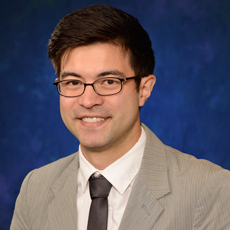
Anyone who doubts the enormous power wielded by frontline caregivers should listen to the premiere episode of “Invisibilia,” a new radio show and podcast.
I eagerly downloaded the premiere last week, knowing that “Invisibilia” is the brainchild of two NPR veterans who cut their teeth on some of my favorite programs: “This American Life” and “Radiolab.” But when I realized that the first episode was going to delve into the story of a man with “locked-in syndrome,” I nearly turned it off.
The thought of being trapped in my body, thinking clearly but unable to move or communicate in any way, profoundly terrifies me — obviously nothing remarkable in that. But I don’t think any other fears make me feel so physically sick; whenever I think about being locked in, I get queasy, claustrophobic, suffocated. Hearing the story of Martin Pistorius only deepened my apprehensions.
He was a healthy and intelligent child in South Africa until an illness struck him at the age of 12. He deteriorated in front of mystified physicians and his horrified parents, until he became paralyzed and all but comatose. The eventual diagnosis was cryptococcal meningitis. Doctors said he would be vegetative for the rest of his life, which they presumed would not last long.
But Pistorius did not die within months. He survived a year. Then another. About this time — two years after his diagnosis — he began to “wake up.” Hauntingly, he describes what this was like, slowly becoming aware of his surroundings and then the horrifying reality of his situation. No one knew that he had regained his mental alertness, and he had no way of telling them.
For nearly a decade, Pistorius — later dubbed “Ghost Boy” — lived this hellish existence. He was taken each day to a care facility, where he passed the hours while his parents worked. It’s this part of his story that I think is instructive for long-term care workers.
At the care center, Pistorius was placed in the front of the TV for hours on end. The program on perpetual repeat? “Barney.” This seems like a form of cruelty in and of itself, but to make things worse, a caregiver actually did begin to abuse Pistorius.
Obviously, abuse is totally inexcusable. But Pistorius’s story puts into awful perspective how easy it might be even for generally well-meaning caregivers to make assumptions about residents, particularly those with dementia or other issues that hamper communication. Even if they don’t beat or molest these people under their care, nurses and aides might all too easily treat them with disrespect, neglect them or fail them in other ways, thinking that they are not sentient humans but merely husks, bodies.
Hearing Pistorius talk about his experience is a bracing reminder of how little we know about the human mind and what it’s like to actually live with many disorders — something LTC caregivers surely know all too well, but that they nonetheless might want to reconsider every so often.
The Pistorius story is not all about substandard care. In fact, one of his caregivers emerged as a hero. She began to notice subtle changes in his condition, small movements that struck her as signs of improvement. It was this caretaker who convinced his parents and doctors to run certain tests again; they discovered that he could move his eyes with intention, to look at particular objects. This was the breakthrough that finally, after more than a decade, allowed Martin to communicate.
How often do we hear that quality care begins with direct caregivers? That these are the people who will notice small but important changes? That if nursing assistants and aides are listened to, all sorts of problems — from pressure ulcers to urinary tract infections to depression — can be nipped in the bud? We hear this so often that it can start to sound hollow, perhaps even to the frontline staff members themselves. The story of Martin Pistorius should be an inspiration to these workers that they can make life-altering differences for people in their care; and the tale should reinforce that managers need to listen closely to frontline workers.
Of course, listening closely to things we do not want to hear is difficult — a fact driven home to me by how hard it was to get through this podcast. Still, I recommend it. Just as listening closely on the job will lead to benefits, I believe the difficulties of listening to this episode are definitely outweighed by the rewards.
Tim Mullaney is McKnight’s Associate Editor. Follow him @TimMullaneyLTC.




